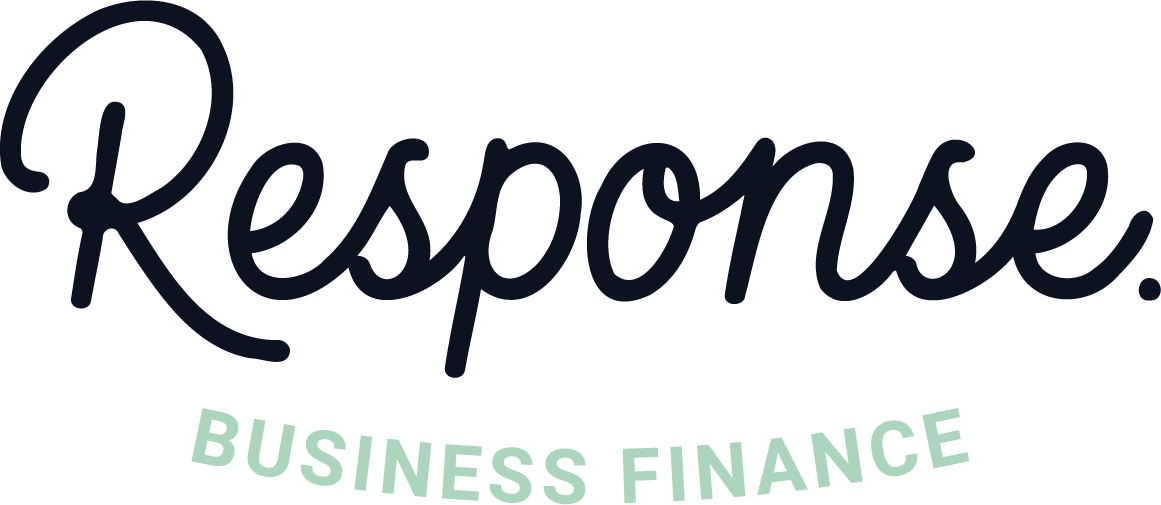
Blog Article by Response Business Finance
Struggling to Get a Business Loan? What to Do If You’ve Got Limited Trading History
Starting a business is tough enough without hitting funding roadblocks. If you’re a new business owner trying to secure finance, you’ve probably already discovered that most lenders want to see years of trading history, solid revenue streams, and proven profitability. But what if you don’t have that yet?
You’re not stuck. There are ways to get business funding even when you’re just starting out or have limited trading history. Here’s what you need to know.
Why Lenders Want Trading History
Banks and traditional lenders use trading history as proof that your business can generate consistent income and repay loans. They look at:
- Monthly revenue patterns
- Profit margins
- Cash flow stability
- Customer payment trends
- Seasonal variations
Without this data, they see you as high risk. That doesn’t mean you can’t get funding – it just means you need to approach it differently.
What Counts as Limited Trading History?
You might have limited trading history if you:
- Started trading less than 12 months ago
- Had inconsistent revenue in your first year
- Recently changed business direction or target market
- Took over an existing business but haven’t built your own track record yet
- Had trading gaps due to external factors (like the pandemic)
Even if you’ve been trading for 6-12 months, many lenders still consider this limited history.
If this sounds like your business, it’s worth understanding which types of business loans are best for start-ups. Some are specifically designed for new ventures without trading history.
Types of Funding Available for New Businesses
Start-Up Loans
Government-backed start-up loans offer funding up to £25,000 for new businesses. You’ll need a solid business plan, but they’re more flexible on trading history. Interest rates are typically around 6% fixed, and you get mentoring support included.
Asset Finance
If you need equipment, vehicles, or machinery, asset finance can work well for new businesses. The equipment itself acts as security, which reduces the lender’s risk. This makes approval easier even without extensive trading history.
Invoice Finance
Got customers but waiting for payments? Invoice finance lets you unlock cash from unpaid invoices – usually within 24 hours. You typically need to be trading for at least 3 months, making it one of the more accessible options for newer businesses.
Unsecured Business Loans
These are harder to get with limited history, but some specialist lenders focus on new businesses. Expect higher interest rates and lower borrowing amounts until you build your track record.
Personal Guarantees and Secured Loans
If you’re willing to put personal assets on the line, you might access better rates and higher amounts. This includes using your home as security or providing a personal guarantee.
Want to understand how these compare? Here’s a helpful breakdown of secured vs unsecured business loans, including pros, cons, and when to use each.
Quick Comparison: Funding Options for New Businesses
| Funding Type | Max Loan | Collateral Needed | Ideal For | Speed |
|---|---|---|---|---|
| Start-up Loan | £25,000 | No | General setup costs | 2-3 weeks |
| Asset Finance | £10k-£500k+ | Yes (equipment) | Equipment, vehicles | 1-2 weeks |
| Invoice Finance | Variable | Customer invoices | Cash flow from B2B clients | 24-48h |
| Unsecured Loan | £5k-£250k | No (but PG likely) | Marketing, stock, general ops | 1-5 days |
What Lenders Look For Instead of Trading History
When you don’t have extensive trading records, lenders focus on other factors:
Your Business Plan
A detailed, realistic plan showing market research, financial projections, and clear growth strategy. This needs to demonstrate you understand your market and have a viable path to profitability.
Personal Credit History
Your personal credit score becomes crucial. Lenders assume that how you manage personal finances reflects how you’ll handle business debt.
Industry Experience
Previous experience in your sector, even as an employee, shows you understand the business. Relevant qualifications or certifications also help.
Cash Flow Projections
Realistic forecasts showing how you’ll generate income and manage expenses. Include best-case, worst-case, and realistic scenarios.
Customer Pipeline
Evidence of confirmed orders, contracts, or strong sales prospects. Letters of intent from potential customers can strengthen your application.
Management Team
If you have business partners or key employees with relevant experience, highlight their backgrounds and roles.
How to Strengthen Your Application
1. Build What History You Can
Even 3-6 months of consistent trading helps. Focus on:
- Regular sales activity
- Maintaining business bank account records
- Keeping detailed financial records
- Building a customer base
2. Prepare Comprehensive Documentation
Gather everything that shows your business is legitimate and viable:
- Business registration documents
- Professional licenses or certifications
- Insurance policies
- Supplier agreements
- Customer contracts or letters of intent
- Marketing materials and website
- Bank statements (business and personal)
3. Create Detailed Financial Projections
Your projections need to be realistic and well-researched. Include:
- Monthly cash flow forecasts for at least 12 months
- Break-even analysis
- Assumptions behind your numbers
- How you’ll use the funding
- Expected return on investment
4. Consider a Co-Signer or Business Partner
Adding someone with strong credit history or business experience can significantly improve your chances. They share the risk, which makes lenders more comfortable.
5. Start Small and Build Relationships
Consider smaller funding amounts initially. Successfully repaying a smaller loan builds your business credit history and relationship with the lender, making future applications easier.
Not sure how much funding you actually need? Let’s talk through your numbers and find the right amount for your business goals.
Where to Look for Funding
Specialist Business Finance Brokers
Brokers who focus on SMEs often have access to lenders who work with newer businesses. They understand the challenges you face and can match you with appropriate funding options.
Alternative Lenders
Online lenders and fintech companies often have more flexible criteria than traditional banks. They may focus more on your business potential than your trading history.
Industry-Specific Lenders
Some lenders specialise in particular sectors and understand the typical challenges and opportunities in those markets. They might be more willing to support new businesses in familiar industries.
Local and Regional Banks
Smaller banks sometimes take a more personal approach and may be willing to support local businesses, especially if you can demonstrate strong community ties or local market knowledge.
Need help choosing the right lender? Speak to a finance broker who understands start-up challenges — get tailored support that matches your specific situation. Get in touch with us today.
Common Mistakes to Avoid
Applying Everywhere
Multiple applications can damage your credit score and make you look desperate. Research lenders carefully and apply strategically.
Overstating Projections
Unrealistic financial forecasts will hurt your credibility. Be optimistic but realistic.
Poor Presentation
Sloppy applications suggest poor business management. Take time to present your case professionally.
Ignoring Personal Credit
Don’t assume business and personal credit are separate. Clean up your personal credit before applying.
Not Having a Plan B
Don’t put all your hopes on one funding source. Have alternative options ready.
Before applying, make sure you’re not falling into any of these common mistakes business owners make when applying for a loan. A strong application starts with avoiding those pitfalls.
The Bottom Line
Limited trading history doesn’t have to stop you from getting business funding. Yes, it’s more challenging, and you might pay higher rates initially. But with the right approach, solid preparation, and realistic expectations, you can secure the funding your business needs to grow.
The key is understanding that lenders need confidence in your ability to repay. When you can’t provide that through trading history, you need to build it through other means – detailed planning, industry knowledge, strong personal credit, and demonstrable market demand for your product or service.
If you’re unsure which finance option is right for your situation, talking to a specialist business finance broker can help. They’ll assess your specific circumstances and guide you toward lenders who are more likely to say yes – even with limited trading history.
Mark Squires
Managing Director
Mark Squires is a seasoned professional with a passion for transforming how businesses access finance. As the founder of Response Business Finance (RBF), Mark leads a boutique commercial brokerage built on the principles of sensibility, ethics, and proactivity. His vision is simple yet profound: to make commercial finance personal, offering tailored solutions that empower SMEs to thrive.




